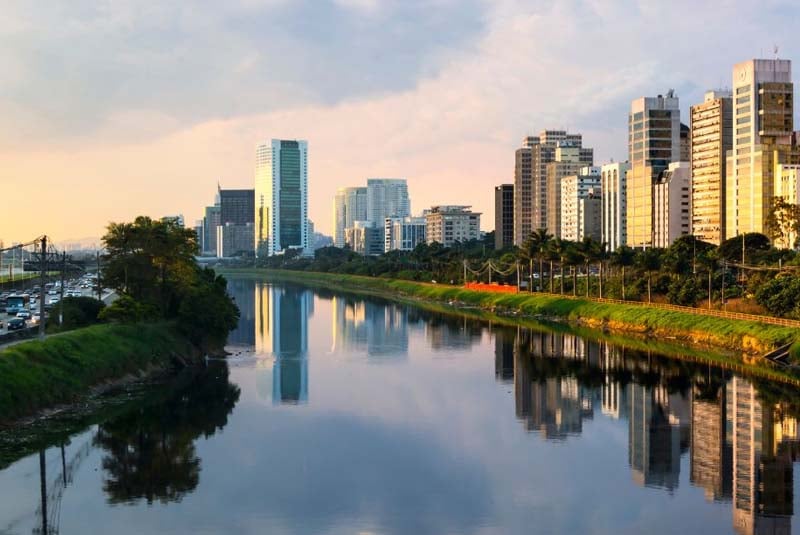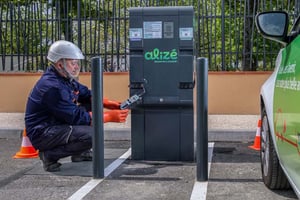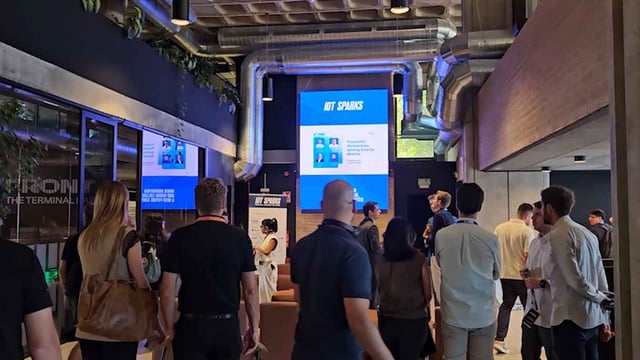A new public–private partnership between Amazon Web Services, Sabesp and Spanish technology provider Aganova will deploy advanced in-pipe acoustic inspection tools across critical water mains in the São Paulo Metropolitan Region. The 10-year program aims to recover an estimated 210 million liters of potable water annually by locating and repairing leaks that are currently undetectable through conventional monitoring methods.
A Targeted Strategy To Reduce Non-Revenue Water In Brazil’s Largest Water System
The initiative centers on a planned inspection of 64 kilometers of large-diameter transmission pipelines, a segment of São Paulo’s network where aging infrastructure and high pressures generate substantial water losses. Sabesp, responsible for supplying more than 28 million residents—currently reports water losses of around 29%, a figure consistent with chronic non-revenue water challenges in large urban systems.
São Paulo’s recurrent drought cycles and rapid urban expansion have put additional stress on its supply capacity. By enabling high-precision leak detection and targeted maintenance, the program aims to strengthen the region’s long-term water security strategy and supports the utility’s ongoing modernization roadmap.
Nautilus Inspection Technology And AWS-Based Analytics
At the core of the project is Aganova’s Nautilus platform, a free-swimming, neutrally buoyant acoustic inspection device capable of surveying pipelines without interrupting service. The tool should identify hidden leaks, structural anomalies, and weak points that would not register on standard pressure- or flow-based systems.
Data processing and anomaly classification will run on AWS cloud infrastructure, enabling real-time analysis of acoustic signatures and rapid dispatch of field crews. Effic, Aganova’s local partner in Brazil, will provide on-the-ground engineering support, deployment services, and integration with Sabesp’s maintenance operations.
This approach is designed to accelerate diagnosis while reducing operational disruption, lowering repair backlogs, and improving asset-planning accuracy for high-value transmission corridors.
Alignment With Amazon’s Global Water Replenishment Commitments
The São Paulo initiative is one of two water-related programs that AWS is supporting in the region. In parallel, the company is partnering with the Fundação SOS Mata Atlântica to restore 44 hectares of native forest in the PCJ and Sorocaba river basins through the planting of 100,000 native trees—an intervention expected to improve aquifer recharge and watershed resilience.
Together, the leak-reduction program and the reforestation effort are projected to return a combined 354 million liters of water per year to local ecosystems and communities. These projects form part of Amazon’s broader global water stewardship strategy, under which the company plans to become water positive by 2030. According to AWS’s latest public reporting, the company had achieved 53% progress toward this goal by the end of 2024.
A Model For Water Loss Reduction Across Global Utilities
Aganova’s technology has been adopted by utilities across Europe, the Middle East, North Africa and Latin America, reflecting rising demand for high-resolution pipeline diagnostics. The company maintains ongoing collaborations with operators including Uisce Éireann in Ireland, SEDIF in France, Aquedotto Pugliese and Acoset in Italy, Aquanet in Poland, SMAS Sintra in Portugal, ONEE in Morocco, in Spain and multiple utilities in the Gulf region.
Given São Paulo’s size and the scale of Sabesp’s distribution network, the Brazilian project is likely to become one of the largest long-term deployments of free-swimming acoustic inspection systems in Latin America.










